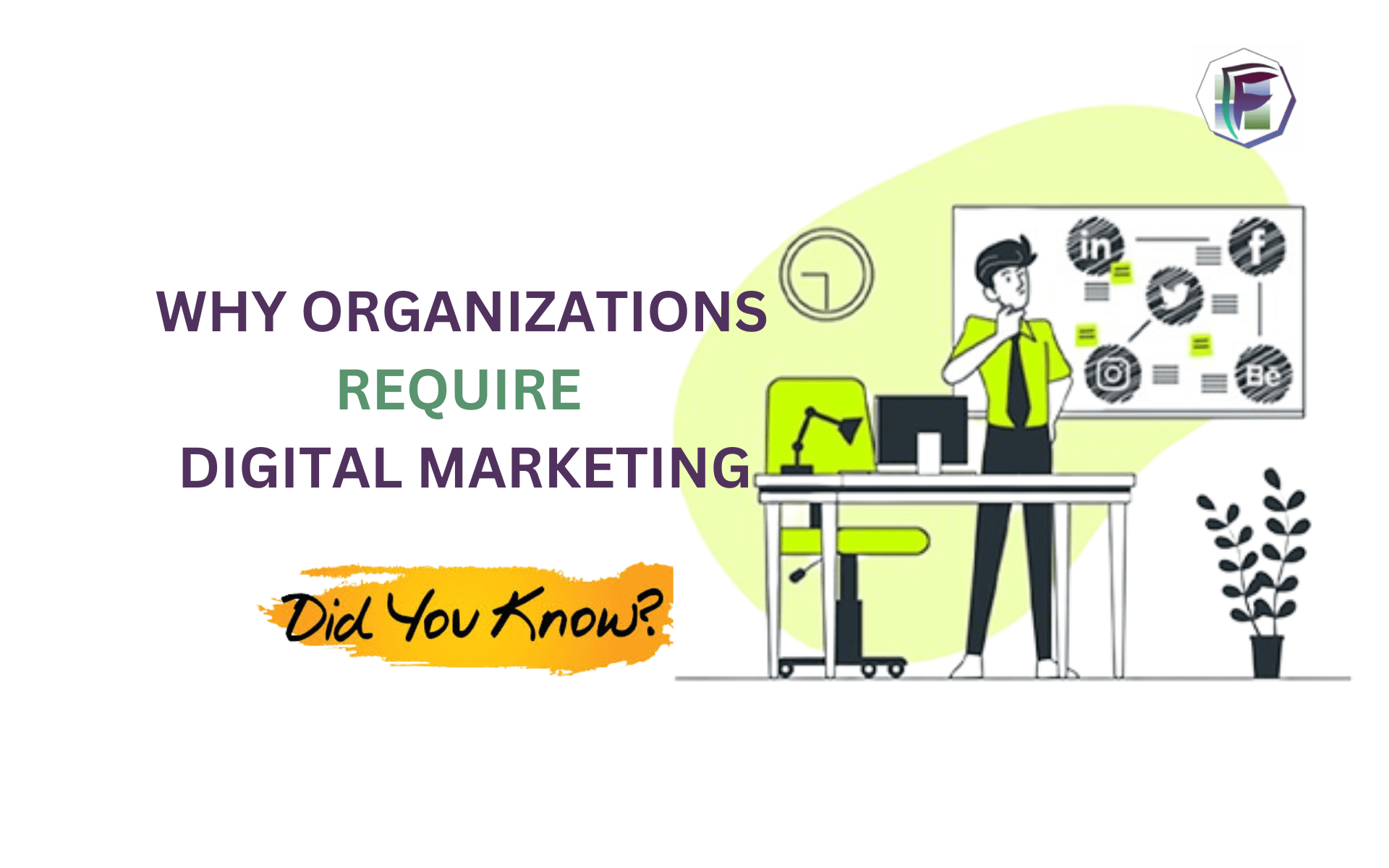Organizations Require Digital Marketing To Such An Extent
Introduction:
In today’s increasingly digital world, businesses cannot afford to ignore the importance of digital marketing. It has become an integral part of any successful marketing strategy. Digital marketing encompasses a range of tactics and channels that help businesses connect with their target audience, build brand awareness, and drive growth. This article explores some key reasons why digital marketing is essential for businesses in today’s competitive landscape.
- Wide Reach and Targeting: Digital marketing allows businesses to reach a vast global audience. With the internet and various digital platforms, you can connect with potential customers regardless of their geographical location. Moreover, digital marketing techniques such as search engine optimization (SEO), pay-per-click (PPC) advertising, and social media advertising enable precise targeting. This means you can tailor your marketing messages to specific demographics, interests, and behaviors, ensuring that your efforts are more likely to reach the right audience.
- More affordable: Digital marketing frequently offers a more affordable solution when compared to traditional marketing strategies. For instance, launching internet advertising campaigns through tools like Google Ads or social media platforms often enables businesses to set budgets and monitor the effectiveness of their ads in real time. In comparison to traditional advertising channels, firms may optimize their marketing expenditures and obtain a higher return on investment with this degree of control and transparency.
- Measurable Results: One significant advantage of digital marketing is accurately measuring and tracking your campaigns’ results. Digital marketing tools and analytics platforms provide valuable insights into various metrics, including website traffic, engagement, conversion rates, and customer behavior. These insights help businesses understand what works and what doesn’t, allowing them to make data-driven decisions and refine their marketing strategies for better results.
- Increased Customer Engagement: Businesses may use digital marketing to connect with their target market in a variety of ways. Businesses can encourage two-way conversations, receive feedback, and develop connections with customers via social media platforms, email marketing campaigns, and interactive website content. Businesses can get insightful information from their clients, raise customer happiness, and encourage loyalty and repeat business.
- Brand Building and Awareness: Establishing and enhancing brand awareness is a key objective for businesses of all sizes. Digital marketing offers a range of tools and channels to build a strong brand presence online. Through consistent messaging, compelling content, and visual elements, businesses can shape their brand identity and establish credibility and trust with their audience. Additionally, social media platforms and online communities provide opportunities for businesses to amplify their brand message, reach new audiences, and generate word-of-mouth referrals.
- Flexibility and Adaptability: Thanks to digital marketing, organizations can quickly adjust to shifting consumer trends and market situations. Digital campaigns, in contrast to traditional marketing, are simple to modify and improve instantly. Businesses can determine which initiatives are effective and make the required adjustments to maximize their impact by using real-time data and insights. Businesses can maintain agility and competitiveness in a fast-paced digital environment because of this flexibility.
Conclusion:
The advent of digital marketing has transformed the manner in which businesses establish connections with their target audience and advertise their offerings. With its extensive reach, affordability, ability to be measured, and capacity for engaging customers, digital marketing has become a crucial element of any effective marketing plan. By leveraging the potential of digital marketing, companies can enhance brand recognition, attract and retain customers, and ultimately accomplish their business objectives in the contemporary digitally-oriented market.







